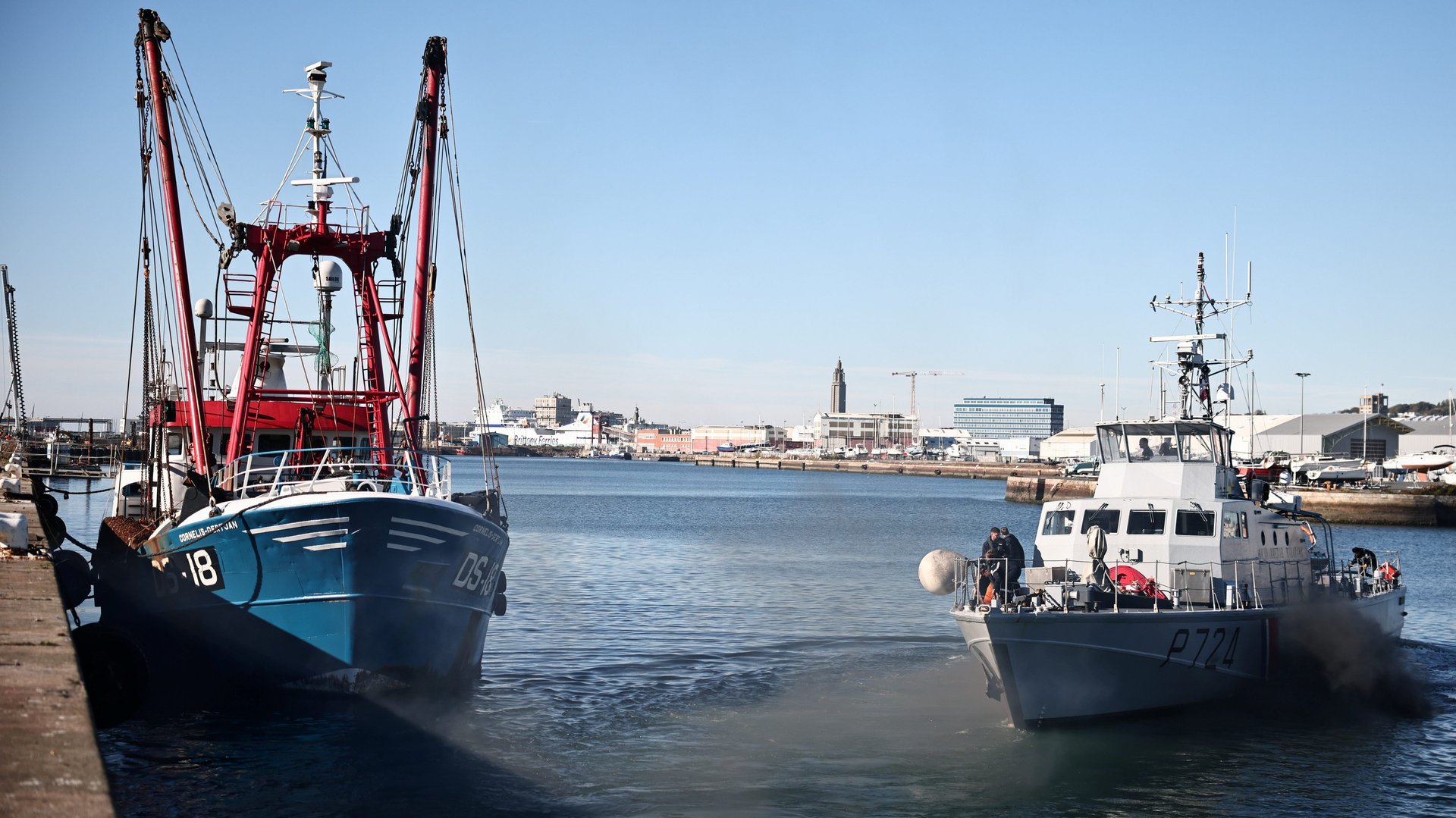A post-Brexit fishing spat between the UK and France has escalated
The UK threatened legal action against France today (Nov. 1) in a dispute over licenses to operate in Britain’s territorial waters. France has said it will block British boats from docking in its ports if the UK doesn’t grant additional fishing licenses to French vessels, per requirements laid out in the post-Brexit trade deal. UK foreign secretary Liz Truss said the UK would give France 48 hours before moving ahead with additional measures.


The UK threatened legal action against France today (Nov. 1) in a dispute over licenses to operate in Britain’s territorial waters. France has said it will block British boats from docking in its ports if the UK doesn’t grant additional fishing licenses to French vessels, per requirements laid out in the post-Brexit trade deal. UK foreign secretary Liz Truss said the UK would give France 48 hours before moving ahead with additional measures.
While the current row is over a small number of fishing licenses for boats operating around the British island of Jersey, French officials are calling it a precedent-setting example of challenges that are likely to arise for industries affected by post-Brexit trade disputes.
How Brexit changed access to fishing waters
While the fishing industry accounts for just around 0.1% of the UK’s GDP, access to territorial waters was a major concern for supporters of the 2016 UK referendum to leave the EU. Politicians such as Nigel Farage—who appeared on a flotilla alongside Scottish fishermen in the weeks leading up to the vote—argued the country’s fishing industry was badly hurt by the EU’s common fisheries policy, which has allowed European fishermen to catch and profit from large shares of fish from UK waters since the 1970s.
At the same time, Britain exports a large share of the fish it catches, so losing the EU as a trading partner entirely would be harmful to the country’s fishermen. After much back-and-forth during post-Brexit trade negotiations, the two sides came to a deal that promises to transfer 25% of fishing rights for British waters from EU to UK boats over the next five years. By 2026 it’s estimated the British fishing industry will bring in an extra £145 million ($198 million) a year thanks to this policy.
But the trade deal, which was signed last December, also mandates fishermen must have a license proving they have a history of fishing in UK territorial waters in order to continue doing so as of Oct. 30. These licenses have reportedly proven tricky for some French boats to obtain. The UK says it’s granted fishing licenses to 98% of EU vessels that applied, but there are nevertheless a handful of French boats off the coast of Jersey—one regional fishing committee head estimated 20 or 30—that have not received permits.
Fishing in UK waters has been profitable for France over the years. A 2020 report by the UK’s Marine Management Organization found that the country’s fishermen took in more money on average than any other EU country from 2016-2016, with the annual “landed value” of fish caught in UK waters averaging at £156 million.
France sees this as an opportunity to make an example of the UK
With a number of French boats waiting on additional fishing permits, the French government has threatened not only to block British boats from docking in its waters, but also to keep British trucks from unloading goods at the ports of Calais and Bolougne. It’s also threatened to restrict electricity to the Channel Islands, which is dependent on France for its energy supply.
French prime minister Jean Castex elevated the dispute to European Commission president Ursula von der Leyen on Oct. 28 with a letter indicating that the disagreement was about more than just access to fishing waters. Castex warned that if the UK remained “non-cooperative” on such matters, it could “set a precedent for the future,” potentially threatening the EU’s credibility and capacity to defend its rights when it comes to international agreements.
UK prime minister Boris Johnson called France’s retaliatory threats “completely unjustified,” while foreign secretary Truss suggested a less noble factor might be driving the spat: Facing an election next year, president Emmanuel Macron could probably use the support of the country’s fishermen.